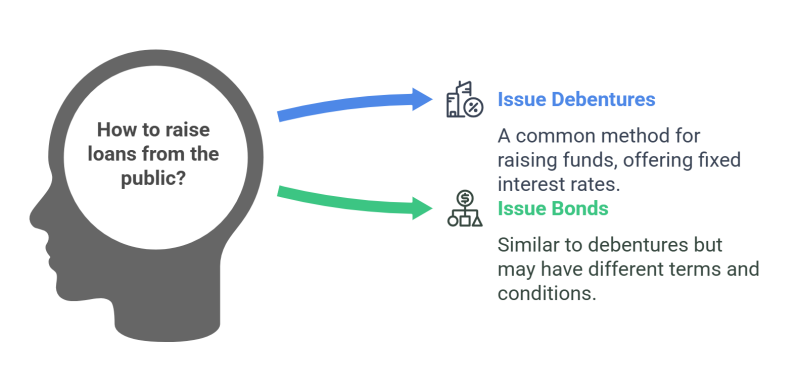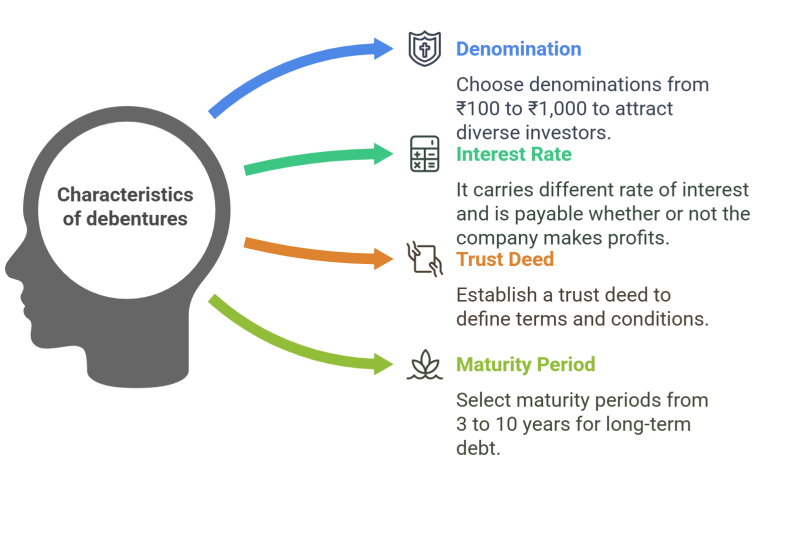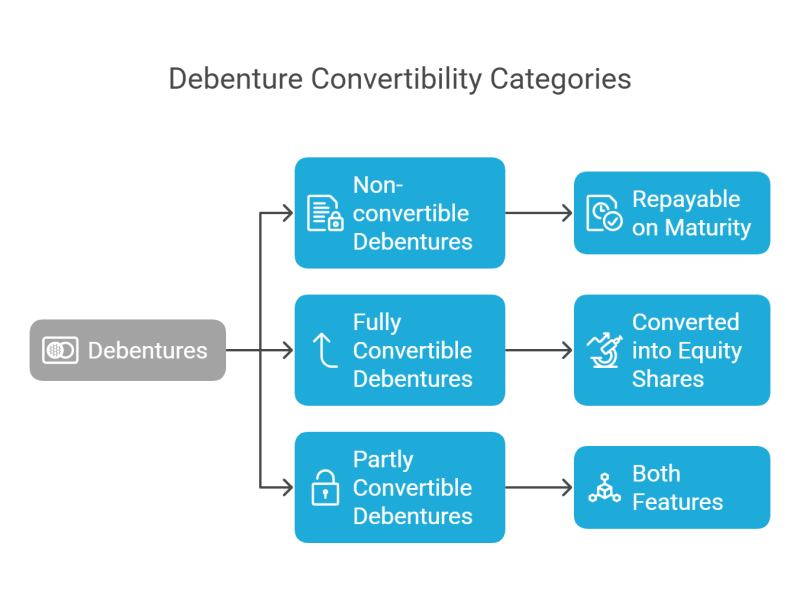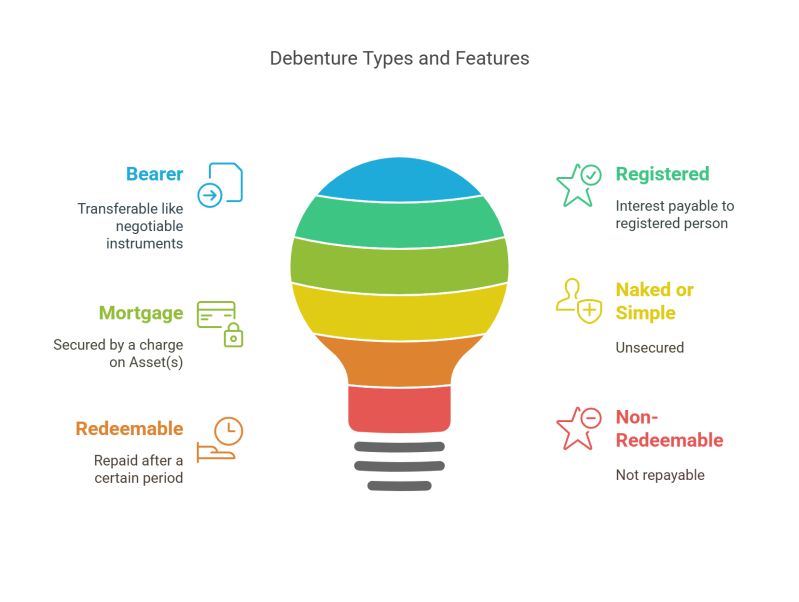Debentures
Loans can be raised from public by issuing debentures or bonds by public limited companies.

Some of the characteristics of debentures are:
- Debentures are normally issued in different denominations ranging from `100 to ` 1,000 and carry different rates of interest.
- Normally, debentures are issued on the basis of a debenture trust deed which lists the terms and conditions.
- Debentures are basically instruments for raising long-term debt capital.
- The period of maturity normally varies from 3 to 10 years
- Debentures are either secured or unsecured.
- They may or may not be listed on the stock exchange.
- The cost of capital raised through debentures is quite low since the interest payable on debentures can be charged as an expense before tax.
- Interest on debentures is payable whether or not the company makes profits.

Debentures can be divided into the following three categories based on their convertibility:
- Non-convertible debentures – These types of debentures will not covert to shares and are repayable on maturity.
- Fully convertible debentures – Such debentures are converted into equity shares as per the terms of issue.
Interest rates on such debentures are generally less than the non-convertible debentures.
- Partly convertible debentures – These debentures carry features of both convertible and non-convertible debentures. The investor has the advantage of having both the features in one debenture.

Other types of Debentures with their features are as follows:
| Sl. No. | Type of Debenture | Salient Feature |
|---|---|---|
| 1 | Bearer | Transferable like negotiable instruments |
| 2 | Registered | Interest payable to registered person |
| 3 | Mortgage | Secured by a charge on Asset(s) |
| 4 | Naked or simple | Unsecured |
| 5 | Redeemable | Repaid after a certain period |
| 6 | Non-Redeemable | Not repayable |

Advantages of raising finance by issue of debentures are:
- The cost of debentures is lower than the cost of preference or equity capital as the interest is tax-deductible.
- Investors consider debenture investment safer than equity or preferred investment and, hence, may require a lower return on debenture investment.
- Debenture financing does not result in dilution of control.
- In a period of rising prices, debenture issue is advantageous., the company has to pay a fixed rate of interest.
Disadvantages of debenture financing are:
- Debenture interest and the repayment of its principal amount is an obligatory payment therefore it enhances the financial risk.
- The protective covenants associated with a debenture issue may be restrictive.
- Since debentures need to be paid at the time of maturity, a large amount of cash outflow is needed at the time of repayment.

Public issue of debentures and private placement to mutual funds now require that a debenture issue must be rated by a credit rating agency like CRISIL. The credit rating is given after evaluating factors like track record of the company, profitability, debt servicing capacity, credit worthiness and the perceived risk of lending.
Difference between Preference Shares and Debentures
| Basis of difference | Preference shares | Debentures |
|---|---|---|
| Ownership | Preference Share Capital is a special kind of share | Debenture is a type of loan which can be raised from the public |
| Payment of Dividend/ Interest | The preference shareholders receive fixed amount of dividend. | It carries fixed percentage of interest. |
| Nature | Preference shares are a hybrid form of financing with some characteristic of equity shares and some attributes of Debt Capital. | Debentures are instrument for raising long term capital with a fixed period of maturity. |


Add comment
Comments